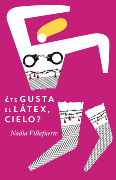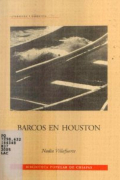
- nvillafuertevazquez@ucsd.edu
-
Arts & Humanities Bldg (RWAC)
Room 376
Mail Code: 0410
Assistant Professor

Nadia Villafuerte (she/her) is a scholar, professor, and fiction writer who serves as Assistant Professor in the Literature Department and as affiliated faculty in Latin American Studies and Chicanx/Latinx Studies at UCSD. Her research interests include contemporary Central American, Mexican and Latinxs literatures and cultures; migration studies; transborder literatures and cultures, and creative writing in Spanish.
Pronouns: She/her
Languages: Spanish, English




